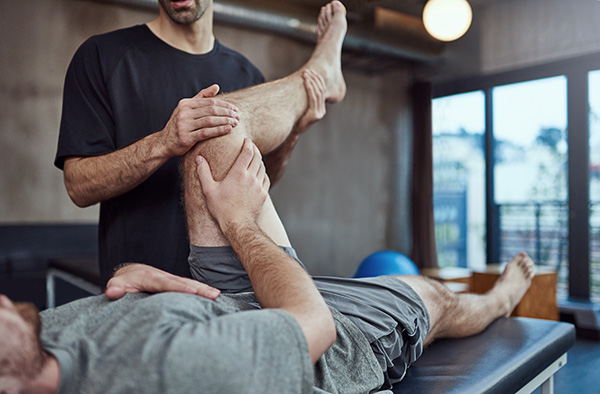Salisbury Medical Practice
Facebook Page | Contact Us
Opening Hours
CQC Rating Good
Joint Pain, Back Pain and Musculoskeletal Injuries


Musculoskeletal Physiotherapy Exercises and Advice
These web pages have advice about a range of musculoskeletal problems, aches and pains including causes, treatments and exercises.
- Back Pain
- Neck Pain
- Shoulder Pain
- Elbow Pain
- Wrist and Hand Pain
- Hip Pain
- Knee Pain
- Foot and Ankle Pain
You can also visit the NHS website Health A-Z for further information.
Getting help and advice
Musculoskeletal injuries usually gets better on its own within a few weeks or months and you may not need to see a doctor or other healthcare professional.
But it's a good idea to get help if:
- The pain does not start to improve within a few weeks
- The pain stops you doing your day-to-day activities
- The pain is very severe or gets worse over time
- You're worried about the pain or struggling to cope
You can self-refer to Physiotherapy by completing the form below. Find out more about the service here: https://bswcommunityservices.co.uk/services/adult-physiotherapy-service/
Once completed, you can send the completed form to:
Email: wilts.mskphysiobooking@hcrgcaregroup.com
Post: Physiotherapy Department, Salisbury District Hospital, Salisbury, Wilts. SP2 8BJ
Alternatively, you can contact us to book a telephone appointment with a GP.
When to get immediate medical advice
You should contact a GP or NHS 111 immediately if you have back pain and:
- Numbness or tingling around your genitals or buttocks
- Difficulty peeing
- Loss of bladder or bowel control – peeing or pooing yourself
- Chest pain
- A high temperature
- Unintentional weight loss
- A swelling or a deformity in your back
- It does not improve after resting or is worse at night
- It started after a serious accident, such as after a car accident
- The pain is so bad you're having problems sleeping
- Pain is made worse when sneezing, coughing or pooing
- The pain is coming from the top of your back, between your shoulders, rather than your lower back
These problems could be a sign of something more serious and need to be checked urgently.
INDEX - Self-Help-Centre
Self-Help Information
- Better Health
- Books recommended by GPs
- Carer Support
- Child Health
- Domestic Violence
- Ear Care
- Eye Care
- Health A-Z
- Healthy Lifestyle
- Joint Pain, Back Pain and Musculoskeletal Injuries
- Medicines A-Z
- Mental Health Support
- Over the Counter Medications
- Pain Management
- Pharmacy
- Physiotherapy Self-referral
- Podiatry Self-referral
- Pregnancy
- Sexual Health
